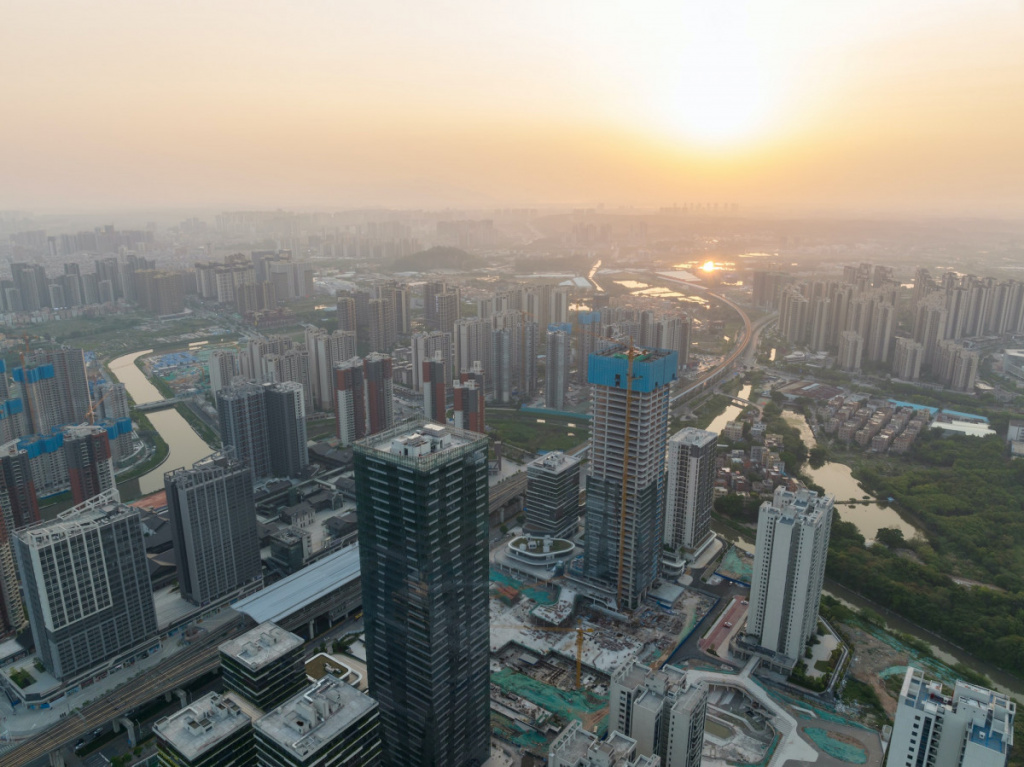Urbanization Trends: Implications for Real Estate Development
Urbanization is a global phenomenon characterized by the increasing concentration of people in urban areas. As populations grow and cities expand, urbanization trends have significant implications for real estate development. Real estate developers, investors, and policymakers must understand these implications to capitalize on opportunities and address challenges effectively. In this blog post, we will explore the key urbanization trends, their impact on real estate development, and strategies to navigate the evolving urban landscape.

Key Urbanization Trends
1. Population Growth: The world’s population is expected to reach 9.7 billion by 2050, with the majority residing in urban areas. This population growth puts immense pressure on cities to provide adequate housing and infrastructure.
2. Urban Renewal and Redevelopment: As cities evolve, there is a growing emphasis on urban renewal and redevelopment to revitalize aging neighborhoods, create mixed-use developments, and optimize land use.
3. Rising Demand for Housing: Urbanization drives an increased demand for housing, especially affordable and mixed-income housing options to accommodate diverse populations.
4. Transportation and Mobility: Urbanization trends require improved transportation and mobility solutions to ease congestion and offer sustainable alternatives, such as public transit and bike-sharing programs.
5. Sustainable Development: Urbanization necessitates sustainable development practices to manage resources efficiently, reduce carbon emissions, and create green spaces for a better quality of life.
Impact on Real Estate Development
1. Vertical Growth: Urbanization drives a shift towards vertical growth, with developers constructing high-rise buildings and skyscrapers to accommodate the growing urban population while optimizing land use.
2. Mixed-Use Developments: To cater to diverse urban lifestyles, real estate developers are creating mixed-use developments that combine residential, commercial, retail, and recreational spaces in a single project.
3. Affordable Housing Solutions: Meeting the increasing demand for affordable housing becomes a priority, prompting developers to explore innovative financing models and collaborate with the public sector.
4. Transit-Oriented Development: With urban mobility becoming a critical issue, real estate developers are focusing on transit-oriented development that integrates residential and commercial properties with public transportation hubs.
5. Smart Cities and Technology Integration: Urbanization fosters the development of smart cities, where technology is integrated to enhance urban services, improve energy efficiency, and optimize resource allocation.

Strategies for Navigating the Evolving Urban Landscape
1. Market Research and Analysis: Conduct in-depth market research to identify emerging urbanization trends and assess demand for different types of real estate properties in specific locations.
2. Sustainable Development Practices: Adopt sustainable development practices to align with the growing focus on environmentally conscious urbanization and attract environmentally conscious buyers and investors.
3. Collaboration with the Public Sector: Partner with the public sector to address urban challenges, seek development incentives, and create more inclusive and resilient urban spaces.
4. Flexibility and Adaptability: Real estate developers should be agile and adaptable to changing urbanization trends and preferences to meet the evolving needs of urban dwellers.
5. Technology Integration: Embrace technology to enhance efficiency, improve the resident experience, and offer smart solutions in real estate developments.
Conclusion
Urbanization trends present both opportunities and challenges for real estate development. As cities continue to grow and evolve, developers must understand the implications of urbanization on their projects and strategies. Vertical growth, mixed-use developments, affordable housing solutions, transit-oriented development, and sustainable practices are among the key responses to urbanization trends. By leveraging market research, collaborating with the public sector, adopting sustainable development practices, and embracing technology, real estate developers can navigate the evolving urban landscape successfully. Ultimately, staying informed and adaptable will position developers to capitalize on the potential of urbanization while contributing to the development of vibrant and sustainable cities for future generations.






[…] Urbanization Trends: Implications for Real Estate DevelopmentUrbanization is a global phenomenon characterized by the increasing concentration of people in urban areas. As populations grow and cities expand, urbanization trends have significant implications for real estate development. […]